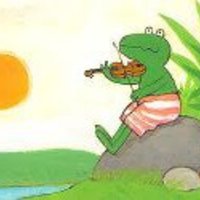Videos by Mariken Teeuwen
In September 2020, Renée Schilling, Irene van Renswoude and I started a new project to build a pr... more In September 2020, Renée Schilling, Irene van Renswoude and I started a new project to build a prototype for a national virtual manuscript library for the Netherlands, using the footprint of e-codices Switzerland. This talk was made for the Schoenberg Symposium 2020: Manuscript Studies in the Covid-19 Age (18-20 Nov 2020). https://www.library.upenn.edu/about/exhibits-events/ljs-symposium13 9 views
Papers by Mariken Teeuwen
Archivum Latinitatis Medii Aevi - Bulletin du Cange (ALMA), 2009

De marges van middeleeuwse boeken zijn een fascinerende bron voor intellectuele geschiedenis. In ... more De marges van middeleeuwse boeken zijn een fascinerende bron voor intellectuele geschiedenis. In de kantlijn zien we hoe tekst georganiseerd wordt, klaar gemaakt voor opslag in het geheugen, in relatie gebracht met andere teksten en ter discussie gesteld. De marges brengen ons in direct contact met de middeleeuwse lezers: we kijken als het ware mee over zijn (of haar) schouder. Het geeft een gevoel van versmelting met het verre verleden vergelijkbaar met de opwinding over een archeologische vondst. De gebruikssporen geven ons bovendien inzicht in de methoden en technieken van wetenschap en onderwijs van die tijd. De teksten zelf ondergaan in hun overlevering steeds wezenlijke veranderingen, omdat zij gelezen worden door een eigen bril, vanuit eigen vragen en belangen. Dat is dan ook precies wat een geschiedenis van tekstoverlevering die evenzeer geworteld is in de studie van handschriften als in de klassieke filologische methodes zo relevant maakt.
This is the proof of an article in the volume 'Manuscripts of the Latin Classics 800-1200... more This is the proof of an article in the volume 'Manuscripts of the Latin Classics 800-1200', edited by Erik Kwakkel in the series 'Studied in Medieval and Renaissance Book Culture'. I studies the ways in which Carolingian scholars and students worked with their books with ancient and late-ancient texts.
This is a contribution to the Festschrift for Patrizia Lendinara, exploring what traces of reader... more This is a contribution to the Festschrift for Patrizia Lendinara, exploring what traces of readers and users in glossaries could tell us about how, why and by whom these medieval dictionaries were consulted. Seven manuscripts with glossaries from the collection of Leiden University Library are described and compared with respect to what happens in their margins and interlinear spaces.
This is the publication of a lecture I gave to accompany an exhibition at the Herzog August Bibli... more This is the publication of a lecture I gave to accompany an exhibition at the Herzog August Bibliothek in Wolfenbüttel focused on marginal annotations in manuscripts and early printed books from the collection. In the paper I illustrate how the marginal activity shows us the medieval reader, his/her interests, purposes, distractions and associations.
Ars Edendi Lecture Series, vol. IV, 2016
Rethinking and Recontextualizing Glosses : New Perspectives in the Study of Late Anglo-Saxon Glossography, 2011

vacancy, 2022
The research group Innovating Digital Editions at the Huygens Institute in Amsterdam creates digi... more The research group Innovating Digital Editions at the Huygens Institute in Amsterdam creates digital scholarly editions of literary and (cultural) historical sources, with a focus on Dutch history and culture. The group consists of experts in textual scholarship, (digital) scientific editions and cultural heritage. As a member of the eDITem project you will work on the realization of a tool for publishing digital text editions. You design templates in TEI (Text Encoding Initiative) XML to model and publish different types of literary and (cultural) historical sources. You work closely with researchers involved in the edition project The Mondrian Papers (https://mondrianpapers.org/), for which a proof-of-concept digital edition is being delivered. You also work closely with the Digital Infrastructure department of the KNAW Humanities Cluster, which is responsible for developing and managing, often innovative, software for scientific research.
Utrecht Studies in Medieval Literacy

In dit artikel wordt ingegaan op het fenomeen van middeleeuwse handschriften met interlineaire en... more In dit artikel wordt ingegaan op het fenomeen van middeleeuwse handschriften met interlineaire en marginale aantekeningen – glossen en commentaren. Deze marginale teksten zijn anders van aard dan de hoofdteksten waaraan ze zijn vastgehecht, met meer vrijheid voor de kopiist(en) en een complexere overleveringsgeschiedenis. De vraag is hoe een editeur met dit soort teksten om moet/kan gaan. Om hierop een antwoord te vinden onderzoekt de auteur de ontstaansgeschiedenis van dergelijke teksten en hun rol in de middeleeuwse geleerde context. Abstract The focus of this essay is on mediaeval manuscripts with interlinear and marginal notes – glosses and commentaries. These marginal texts are different in nature from the main texts to which they are attached, and demonstrate a more complex transmission history in which copiists allowed themselves more textual freedom. The question is how a scholarly editor best treats these texts. In order to propose an answer to this question, the author of ...

Uploads
Videos by Mariken Teeuwen
Papers by Mariken Teeuwen
It studies three examples of annotating books from the Carolingian period. It argues that the marginal annotations we find in books of the period have multiple purposes: not just education or explanation, but also (textual) criticism, mnemonic aids, discussion and critique. The analysis of these practices of reading and writing shed light on the dynamics of intellectual life of the period.